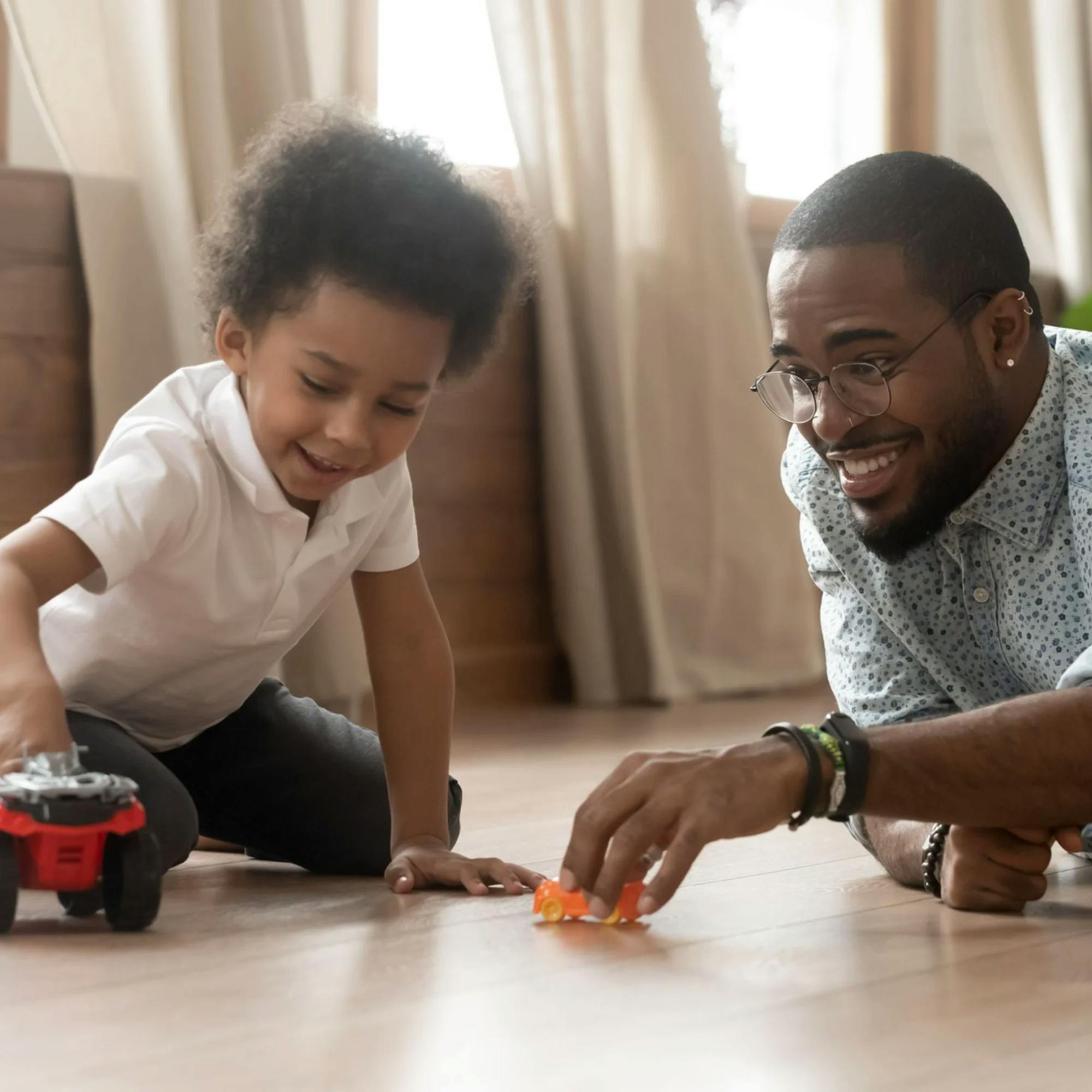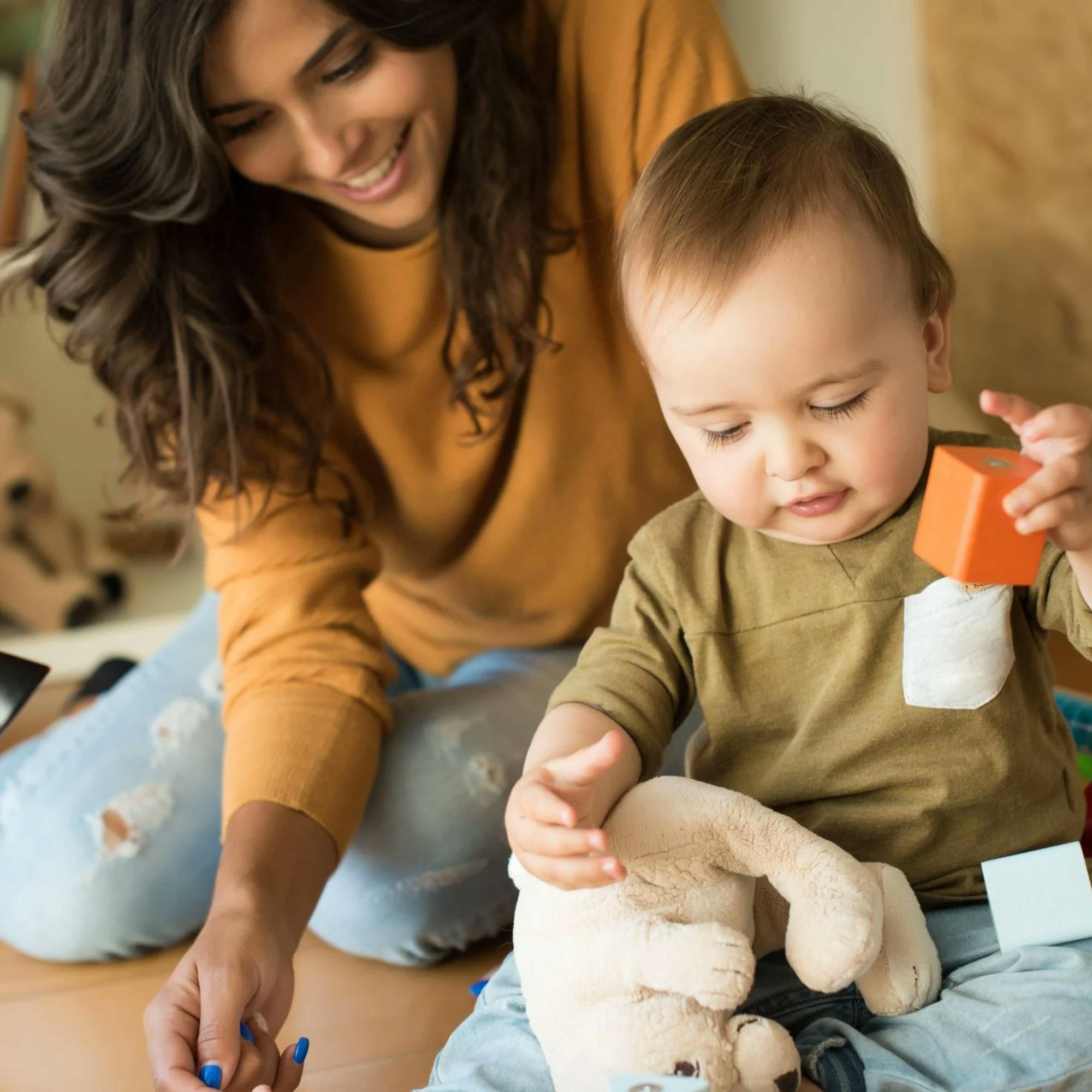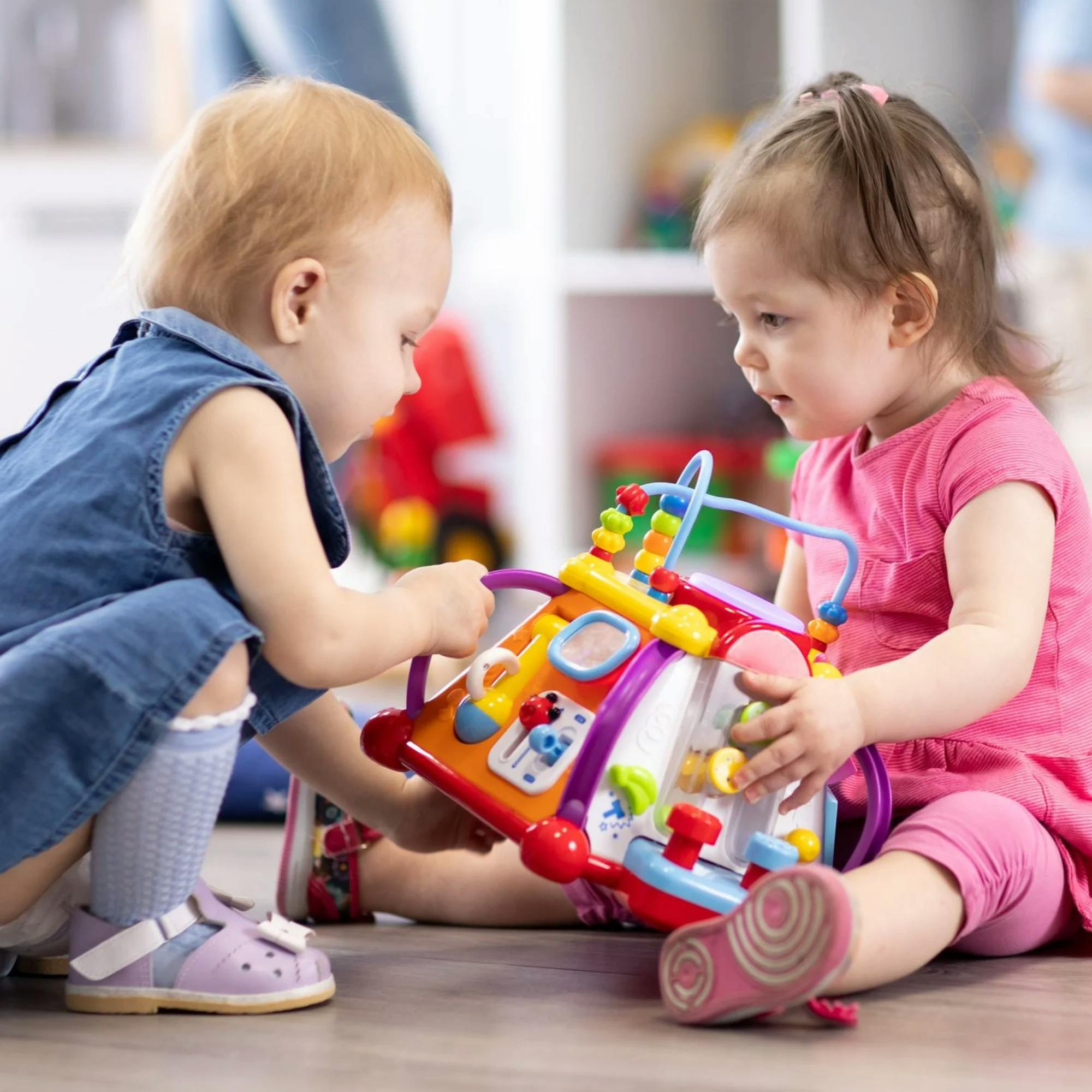
How to Help Your Child Use Longer Phrases When Talking
 Leanne Sherred, M.S., CCC-SLP
Leanne Sherred, M.S., CCC-SLP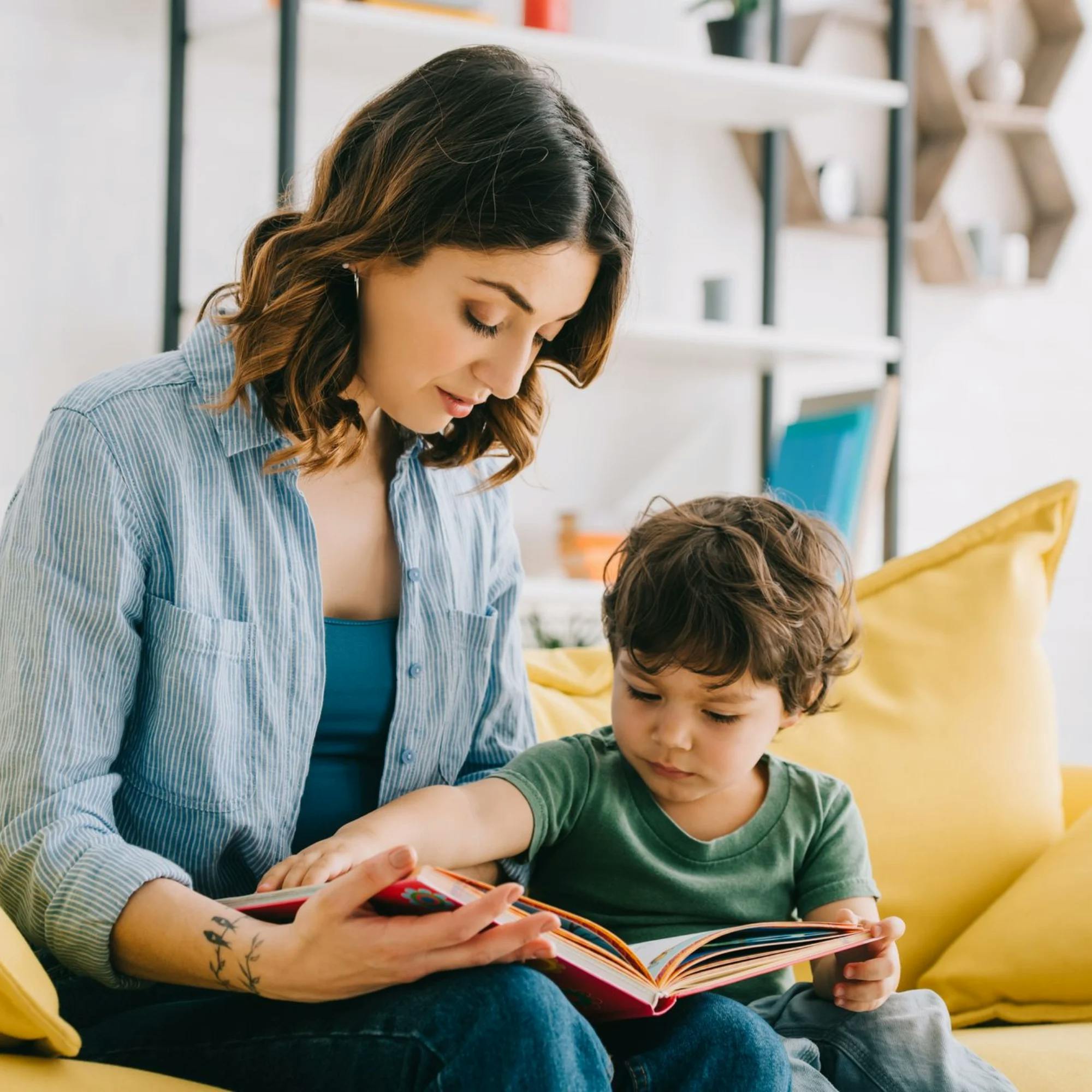
When your child speaks their first words, it's such an exciting time! For a while, you will likely observe your child using single words to communicate their wants and needs. Once your child turns 2 years old, they may begin to pair words together to create two-word phrases.
However, some children need a little extra help producing these short phrases. Other children may initially start using two-word phrases easily, but then hit a plateau and struggle to produce longer, three- to four-word phases.
Read on for some simple tips you can start trying today to encourage longer spoken phrases from your child.
Model speech constantly
As a speech-language pathologist (SLP), I often tell parents how important it is to model speech for their children. Children need to hear speech frequently when learning how to use it themselves. After all, that's how children learn to communicate--from listening to and absorbing language from those around them.
Throughout your day, narrate what you're doing with your child. It may feel a little silly, but I promise this is very helpful for your child’s language development. By doing this, your child will quickly begin to make associations between what you're doing and what you're saying, helping them learn new vocabulary.
While it's important to model adult-like speech for your child, don’t hesitate to model simple phrases as well. In the early days of language development, short phrases are more likely to be imitated than long, complex sentences.

Read often to your child
Reading is important in regards to language development. Reading helps increase a child's receptive and expressive vocabulary--or, in other words, their ability to both use and understand language. It can also help your child begin to understand new ways to structure phrases (and eventually sentences)!
Here’s an easy activity you can do with your child. As you read together, have your child imitate a simple, short phrase that relates to what's going on in the story or in the pictures. When you do fun activities like this with your child, it can give them more confidence in their communication skills. This increase in self-assurance often motivates them to begin speaking more.


Focus on different parts of speech
When you read to your child or model speech for them, focus on different parts of speech. This can include nouns, verbs, adjectives, and pronouns.
The more words your child understands, the more words that they are likely to say. This can naturally help children increase the length of spoken phrases. Likewise, when your child has a richer vocabulary, their speech will become more mature sounding. To see some practical ways to do this, check out this fun demo video from one of our speech therapists!


How to decide on the right phrase length
When deciding what length of phrases to focus on with your child, take a second to think about how many words they usually say.
If your child frequently uses single words, then try prompting them to use two-word phrases (this should begin around 2 years old). If your child is already using two-word phrases, that's fantastic! Now aim for three-word phrases.
See how we're working just one level above where your child is currently performing? It's important to increase the phrase length just slightly. This will help your child easily achieve new speech goals and build up their confidence.

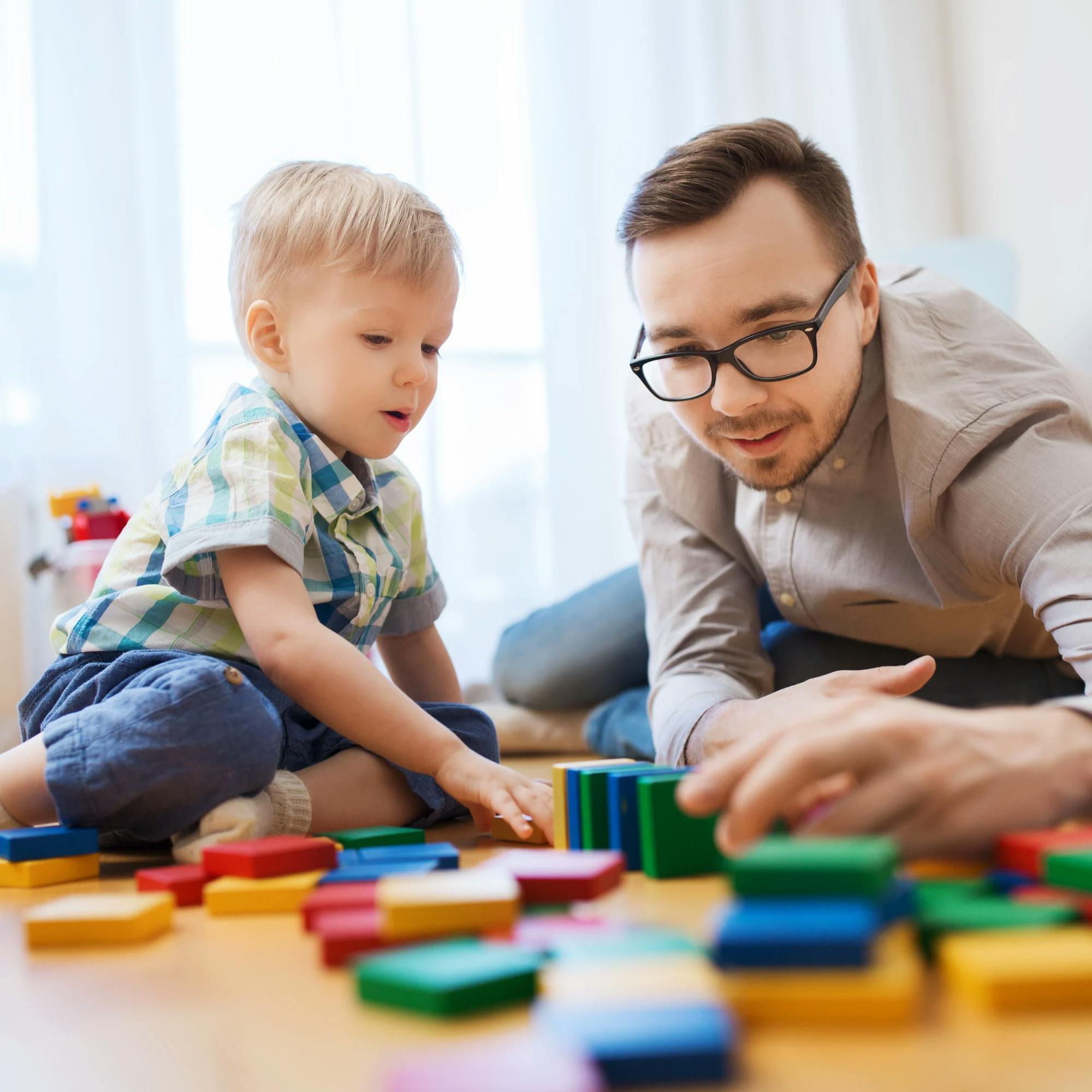
How to naturally expand phrase length
When prompting your child to use a longer phrases (remember, just one word longer than what they're usually producing), practice during situations where your child is talkative and engaged.
For example, if your child really loves playing with toy cars and trucks, then use these types of toys to your advantage. Here are a few examples of how to naturally increase spoken phrases in this type of play situation:
If your child says, “Car!” to request the toy car, you can model, “Car, please!” Wait and see if your child will imitate.
If your child says, “Big truck!” to comment on their toy, you can model, “Big, blue truck!” Again, wait expectantly to see if they'll imitate your utterance.
Notice how in these examples we take the same words your child says themselves, and simply add on one new word? Using mostly familiar words increases the chances that your child will imitate the phrase.


How to motivate your child to talk
While it's true that some children will easily imitate any words or phrases you model for them, some children need more motivation. Because of this, I recommend you use communication temptations to provide ample encouragement. Communication temptations are simple, natural situations you create that will encourage your child to communicate for a reward.
It takes time for children to talk in phrases
As you work with your child on these tasks, remember that it may take some time before your child begins to consistently and independently use phrases in their everyday speech. The most important thing you can do is to set your child up for success by using tips like the ones in this article.
Don’t stress during speech practice--keep it fun and lighthearted. Learning to communicate is hard work for little ones. So be sure to offer lots of encouragement! Just remember to have patience, keep practice fun, and get ready to watch your child grow!
How Expressable Can Help
Concerned your child isn't reaching age-expected milestones? Looking for communication support from a professional? Expressable is a national online speech therapy practice serving children and adults. We treat all major areas of communication and feeding, offer flexible hours including evenings and weekends, and accept most major health insurance plans. We’re proud to have earned more than 3,000 5-star reviews from our clients (4.9/5 average).
Our therapy model is centered on parent and caregiver involvement. Research proves that empowering caregivers to participate in their loved one’s therapy leads to better outcomes. That’s why we combine live, 1-on-1 speech therapy with personalized education and home practice activities for faster progress.
Communication is more than words. It’s how we share how we feel and show who we are. We’re here to help you or your child do just that.

